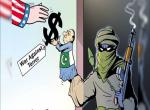The tentacles of the Islamic State (IS) have reached Southeast Asia and the region is increasingly becoming a recruiting hub for the outfit. This is an alarming development as a few of these countries, long considered to be moderate Muslim states, have started witnessing its citizens supporting or joining this outfit. The impact which the returning radicals would have on a particular country, prevention of radicalisation of citizens, containment of recruitment process, and implementation of effective counter-measures are some of the challenges which are being faced by different governments in the region.
Recent Developments
Since mid-2014, many young men have reportedly travelled from Indonesia, Philippines, Malaysia and Singapore, to join the jihad in West Asia. This has serious implications for the governments and security establishments. It is estimated that more than 500 Indonesians travelled to Iraq and Syria (although the exact number joining IS is not yet clear), and approximately 40 to 70 Malaysians and 200 Filipinos have joined the IS.
Many of the radicalised Muslims from the region adhered to the ideology of IS as they feel an affinity for the outfit on theological lines. These people view parallels between the mission of the IS and the “prophecies in Islamic holy texts” regarding the creation of the caliphate. Another important factor responsible for the penetration of IS into the region is the growing sectarianism amongst Shias and Sunnis. Malaysia is a good case where the spread of Shia ideology is forbidden, and the government is increasingly becoming anti-Shiite. The ongoing unrest in Syria is also attributed to the rising support for the terror group in Southeast Asia. In other words, the recruitment into IS cannot be isolated from the “context of humanitarian crisis in Syria”.
The involvement of Indonesians with the IS is mainly due to the outfit’s appeal for the creation of an Islamic state. The commonality in their objective has become an incentive for the home-grown terror organisations to pledge support for IS. Aceh, a Muslim-majority area, which is also a special region of Indonesia, is becoming a haven for Sunni extremists as thousands of them, including former militants from the Free Aceh Movement, pledged allegiance to Abu Bakr al-Baghdadi last year. As this province abides by Sharia law, strict regulations are imposed even in educational establishments and public places. Thus it has become a fertile area for growth of extreme radicalisation.
In Malaysia, the domestic politics of political party such as United Malays National Organisation (UMNO), which is heading the coalition government, gives rise to serious resentment in the country. The issue of sectarianism is growing at an alarming pace, whereby, many of the religious and political hardliners are antagonistic towards minorities, particularly, the Shia brand of Islam. The ongoing conflict in Syria has further exacerbated the hatred for the Shias. The strengthening of anti-Shiite rhetoric is increasingly providing important “religious justifications” for several radicalised youths to travel to Syria and Iran and join the IS. The extreme politicisation of Islam inside Malaysia is fuelling radicalism in the country.
Recruitment and the Concerns
The IS deploys its online recruitment tactics by using social media tools such as Facebook and Twitter. Many techno-savvy fighters, with the use of the modern technology, reach out to various sections in the society. In Philippines, recruitment is said to have taken place even in universities and schools. This indicates the involvement of local institutions in indoctrinating young people. As explained by one commentator:
“Communication technologies give IS recruiters a messaging platform across the region and low cost travel is making transport to the Middle East far easier than it was in the 1980s. This is increasing the number of fighters stemming from the region as well as broadening the range of countries they are coming from.”
Further, brutalities of IS right from its inception has attracted different terror groups. Its public executions through stoning, beheading, etc. have enhanced its image as a resolute outfit unlike many of its contemporaries. Its sustainability, despite various ongoing military campaigns to trample its might, has increased its credibility as an organisation that is committed to its cause of establishing a state to be governed by Shariah laws. Further, limited knowledge of English and Arabic languages in most of these countries has remained another crucial factor for building communication links both within the region as well as with those in the war-torn countries. Reportedly, in September 2014, militants from Malaysia and Indonesia speaking a common language, Malay, formed a 22-member group called Katibah Nusantara Lid Daulah Islamiyyah (Malay archipelago unit for the Islamic State) in Al-Shadadi, Syria. The primary motive of this combat unit is to help IS in furthering its goal, and it is this ideology that binds the fighters. Their combat tasks are made easy with the help of this common language. The group’s fighting capability was acknowledged in early April this year when it captured a few Kurd-held territories inside Syria. This unit is known to have provided assistance to those families whose members are fighting in Iraq and Syria, and it is playing an important role in recruiting and propagating terror ideology.
The supporters inside a particular country, in turn, translate the message of the IS into various vernaculars. This is where a wide range of social networking sites have come into play. For instance, a pilot named Ridwan Agustin from AirAsia (who is believed to be in Raqqa in Syria), and another pilot, Tommy Hendratno, who worked for a charter flight company, both from Indonesia, reportedly promoted the ideology of IS using social media, and were believed to be in contact with various other sympathisers of the outfit. Both of them used their Facebook accounts “posting regularly about the group’s claims of success and winning likes from other accounts that appeared to belong to pilots”. Many of the foreign recruits in the IS are well-educated, former military personnel, and with technological background. These traits are found in those who travelled from the region, particularly, the Malaysians. The flights of these people were made easy by the availability of low-cost travel arrangements, and they entered the battle zones through Turkey, while Indonesia, Brunei and Philippines are the popular points of departure.
It is not merely their departure that caused considerable alarm but their active participation in jihad raised huge concerns in the region. Malaysia has already witnessed its first suicide bomber in 26-year-old Ahmad Tarmini who blew up 25 Iraqi soldiers at Iraq’s SWAT headquarters in al- Anbar on 26 May 2014, followed by that of Ahmad Affendi Abdull Manaff (27), who killed about 50 soldiers of the Syrian President, Bashar Al-Assad, by storming a bomb-laden truck into military installations in Homs, Syria, in late 2014. Most of the suicide bombers for IS, so far, have been foreign recruits. Between mid-2014 and in May 2015, 26 Malaysian-origin IS fighters were reportedly killed in Syria.
An equally worrying development is the allegiance pledged by home-grown terror outfits such Abu Sayyaf and Bangsamoro Islamic Freedom Fighters (BIFF) in Philippines and, Mujahidin Indonesia Timur and Jamaah Ansharut Tauhid (JAT) in Indonesia. One of the earliest calls to support the IS was made by the jailed spiritual leader of the Jemaah Islamiyah (JI), Abu Bakar Bashir in July 2014, and in August, he pledged allegiance to IS. The support offered by these organisations and other independent splinter groups, particularly, in Indonesia, comes in conjunction with their objectives to establish similar Islamic state inside the country. They also have been successful in recruiting local fighters to trigger sectarian conflicts in the region. There are about 22 to 30 terror organisations in Southeast Asia that have pledged to support the IS.
Currently, the possibility of returnees bringing terror back to their respective countries is a major concern. While it is debatable that not every returnee will conduct jihad, most of them have already gained combat experience, skills, indoctrinated themselves with extreme ideologies, and gained knowledge for weapons; as a result, even a few could pose a threat. This is particularly worrisome due to the presence of various terror organisations upon which these returnees can impart their first-hand experience or provide leadership for the extremist movements. Therefore, one should not rule out any nexus between them and, such amalgamation of returnees, local groups and “self-radicalised or lone-wolves” can be quite destructive.
Steps Taken
The Southeast Asian countries have been quick in realising the threats posed by their citizens who are absorbed by the IS. Several countermeasures have now been taken to keep a track of people’s movements towards West Asia. Many who aspired to join the outfit have been arrested. While a few of them (particularly, Indonesians) were arrested before they could flee to Syria, there were others who were detained for plotting terror attacks, mainly, inside Singapore and Malaysia. In what could be considered as effectiveness of the system, law enforcement authorities could nab those civilian recruiters who tried to send people, including children and women to Iraq and Syria. Preventing such involvement of local populace in funding and recruiting for the IS, however, is proving to be a major challenge. This is because security officials need to be extremely careful while handling these issues as any aggressive step carries high risk of further fuelling radical sentiments in a very volatile society, and could trigger severe backlash.
Indonesia has taken some firm steps to crack down on its citizens who have tried to join IS. Its state anti-terror squad, Detachment 88, is doing up a commendable job in this regard. There is a close coordination between this team and the police. Their combined effort in fact led to the arrest of a top leader of JAT, who intended to join IS, in August 2014. These establishments are entrusted with the task of preventing the development of IS ideology in their jurisdictions. In December 2014, one of the country’s military commanders expressed his desire to enhance cooperation with the U.S. to counter the rise of radical groups in Southeast Asia. President Joko Widodo, in January 2015, agreed to “issue a regulation allowing the authorities to revoke the passports” of those who support the IS. The condemnations by the mainstream Muslim organisations towards IS is, indeed, an important counter-narrative, and they are supportive of their government’s action. Organisations such as Nahdlatul Ulama and Muhammadiyah vehemently oppose IS and considered the latter’s teachings and conducts as “antithetical” to tenets of Islam and to Pancasila, the ideology behind the foundation of Indonesia which “endorses no particular religion” but promote the principles of monotheism, humanism, unity, democracy and social justice.
Similarly, Malaysia and Singapore are taking a few steps to prevent young people from joining IS. Kuala Lumpur has initiated a holistic approach to combat extremism. Malaysia’s Islamic Development Department (Jakim) set up a committee called Jihad Concept Explanation Action Committee, just to check the spread of terror ideology by IS supporters or sympathisers in schools, universities and on the internet. The committee is constituted by representatives from the Home Ministry's Malaysian Civil Defence Department, the Prime Minister Department's National Security Council, Royal Malaysia Police, Institute of Islamic Understanding Malaysia (Ikim), Al-Hijrah Media Corp and Institute of Islamic Strategic Research Malaysia (Iksim). This came up after investigators discovered that recruitment of young people was often happening through misleading teachings on jihad or holy war, by lecturers. Various programmes on religious preaching in mosques and prayers halls are believed to be underway. These efforts will be more effective if the government’s domestic policies are inclusive, cutting across sectarian divisions. Likewise, Singapore is also cognisant of the threats posed by radicalised citizens. It went a step ahead by agreeing to provide military support, such as KC-135R Stratotanker for air-to-air refuelling and imagery analysis team, to the U.S.-led air coalition in Iraq. Without involving in combat operations, Singapore Armed Forces (SAF) is coordinating with the U.S. Central Command and the Combined Joint Task Force Headquarters. This tiny nation has exhibited seriousness about IS as it does not want to disrupt the harmony that exists between different communities, and for it being a major financial hub in the region. The East Asia Summit Symposium on Religious Rehabilitation and Social Integration- a counterterrorism meeting- kick-started by this country, with the primary motive to share its “best practices” with like-minded states, is a significant step. And, “tackling and understanding the religious and social aspects of the problem” related to terrorism has been given heightened importance.
Conclusion
The penetration of IS influence in this region, which is posing a serious security threat, must not be underestimated. A lackadaisical approach towards this problem will only fuel more extremism as there are a large number of radical Islamic groups that are getting inspired by the IS. In the wake of this, a regional cooperation on intelligence sharing should be promoted, and this can also be done by roping in countries such as India, Thailand and Australia which have equal concerns towards terrorism. De-radicalisation efforts that have begun in Malaysia, Indonesia and Philippines should be promoted. Further, the need of the hour is to have a strong political will and an effective leadership in every country in order to promote a pluralistic society. This will require an establishment of a healthy relationship between political, security civil society groups and religious establishments. Tellingly, politicisation of Islam in the region should be put to an end. A failure to act upon this will only keep the flame of religious extremism burning, and this will give further leeway to IS to penetrate further into the region.
Published Date: 3rd August 2015, Image Source: http://www.arabnews.com
(Disclaimer: The views and opinions expressed in this article are those of the author and do not necessarily reflect the official policy or position of the Vivekananda International Foundation)










Post new comment